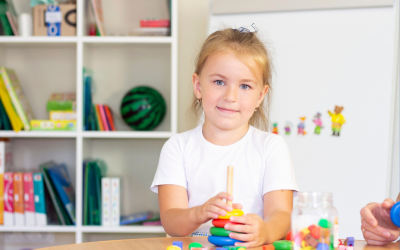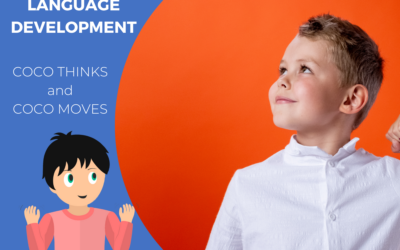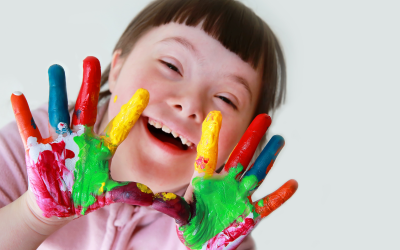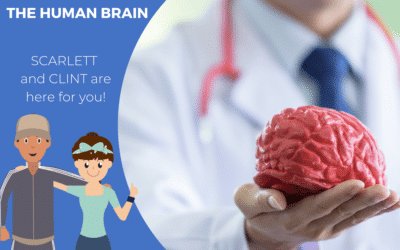The emotional and psychological development of our children is a primary concern for all parents and guardians. However, it is sometimes difficult to determine whether a child’s behaviors and emotions are part of normal development, or whether they signal deeper problems that require professional attention. In a world where children are exposed to a multitude of challenges, from academic pressures to traumatic events, knowing when to seek help from a child psychologist can make all the difference in your little one’s life. We’ll explore the warning signs and common situations that indicate it may be time to consult a child psychologist. We’ll guide you through this delicate process, providing essential information to support your child’s mental and emotional health, and help you find a child psychologist.
Warning signs to call a child psychologist
When it comes to children’s mental health, early detection of problems is essential for their long-term well-being. Child psychologists play a crucial role in identifying and managing emotional and behavioral difficulties. We’ll help you identify the warning signs that indicate you may need to consult a child psychologist,
Identify warning signs: behavior, emotions and development
Behavior
Children’s behavior can vary considerably depending on their age, personality and environment. However, certain behaviors can be warning signs, including :
- Radical changes in behavior: If a child suddenly goes from calm to aggressive or anxious, this may indicate a problem.
- Social isolation: If a child suddenly withdraws from friends and favorite activities, this may be a sign of distress.
- Sleep or eating problems: Significant disturbances in sleep or eating patterns can signal anxiety or stress.
- Difficulties at school: Falling academic performance or concentration problems may require assessment.
Emotion
Children’s emotions are constantly evolving, but some excessive or persistent emotions deserve special attention, including :
- Constant irritability: If the child is always angry or irritable for no apparent reason, this may indicate an underlying problem.
- Persistent sadness: Prolonged sadness, frequent crying or lack of interest in activities once enjoyed are signals to watch out for.
- Excessive anxiety: Extreme anxiety, irrational fears or panic attacks may require evaluation.
Development
Children’s development generally follows a predictable trajectory, but significant delays or deviations can indicate potential problems, including:
- Motor or cognitive delays: If the child is not reaching the developmental milestones expected for his or her age, a professional assessment may be necessary.
- Language difficulties: Language disorders, such as stuttering or the inability to pronounce certain words correctly, may require intervention.
- Social problems: Difficulty establishing relationships with peers or understanding social cues may indicate developmental disorders.
Understanding normal variations in children’s behavior
It’s important to note that not all children’s behaviors are necessarily signs of underlying problems. Children go through normal phases of development that can lead to temporary behaviors, such as tantrums or tantrums.
It is therefore crucial to take into account the context and duration of the behaviors observed. If a behavior is persistent, intense and disruptive to the child’s daily life, it’s time to consider an evaluation by a child psychologist.
Signs of emotional distress to watch out for
The signs of emotional distress in children can vary considerably depending on their age and personality. Some common alarm signals include :
- Frequent nightmares or night terrors: Sleep disorders may reflect underlying stress.
- Regression in development: If a child suddenly begins to regress in behavior, such as wetting the bed again after being potty-trained, this may indicate a problem.
- Self-aggression: Self-injurious or indirect self-injurious behaviors, such as banging one’s head against walls, are signs of severe emotional distress.
- Suicidal or self-destructive thoughts: If a child expresses suicidal thoughts, this is an emergency and requires immediate intervention.
In short, it’s essential to keep a close eye on your child’s behavior, emotions and development. If persistent or severe warning signs are observed, consultation with a qualified child psychologist is recommended. Early detection and intervention can help improve children’s mental health and promote their long-term well-being. Don’t hesitate to seek out trusted professionals for help when you need it.
Common situations requiring a consultation with a child psychologist
When parents are faced with concerns about their child’s emotional and behavioral well-being, it’s essential to know when to call in a child psychologist. Some common situations require professional intervention to help the child overcome difficulties and thrive. In this article, we’ll explore these situations and how a child psychologist can be of great help.
Behavioural problems at school or at home
Behavioral problems can manifest themselves in different ways in children, whether at home or at school. It’s important to recognize when these behaviors become persistent and disruptive. Signs to watch out for include:
- Excessive aggression: Aggressive behavior toward other children, adults or even yourself may require intervention.
- School refusal: If the child systematically refuses to go to school for no apparent reason, this may indicate an underlying problem.
- Oppositional behaviours: Constant disobedience, defiance and non-cooperation can be signs of emotional difficulties.
- Marked drop in school performance: If a child’s grades drop suddenly and significantly, this may be a sign of stress or emotional problems. Read this article if you want to get tips and strategies against school dropout.
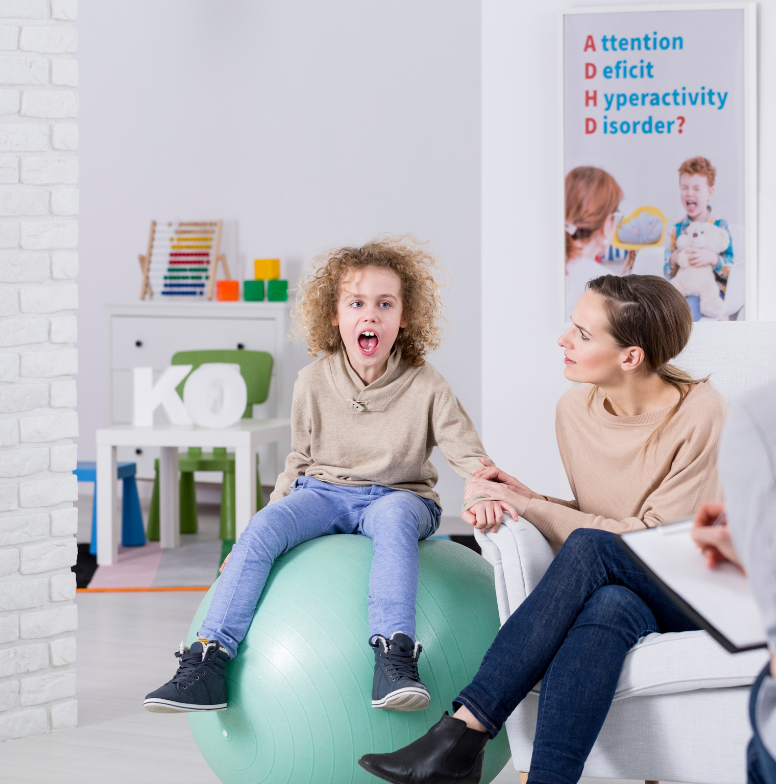
Traumatic or Stressful Events
Children are vulnerable to traumatic or stressful events, such as :
- Parental divorce: Parental separation can be particularly difficult for a child, triggering complex emotions and behavioral reactions.
- Moving: Changing home and school can be a major source of stress for children, affecting their emotional well-being.
- Loss of a loved one: The death of a family member, friend or pet can trigger emotions that are difficult for a child to handle.
- Evidence of violence or abuse: If a child has been exposed to domestic violence or abuse, he or she may need professional help to deal with the trauma.
When faced with traumatic events, it’s always a good idea to talk to a psychologist or health professional.
Adjustment difficulties (divorce, moving, loss of a relative)
Children are often faced with major changes in their lives, such as their parents’ divorce, a move or the loss of a loved one. These transitions can be particularly difficult for a child, leading to emotional and behavioral reactions. A child psychologist can help by offering:
- A safe space for self-expression: Children may need to talk about their feelings and concerns with a professional.
- Coping strategies: The psychologist can teach the child skills for dealing with change and stress.
- Support for the family: The psychologist can work with the family to ease the overall transition.
Developmental disorders (Autism, ADHD, etc.)
Some children have developmental disorders that require specialized assessment and intervention. Common disorders include :
- Autism: Children with autism spectrum disorders can benefit from early intervention to develop their social and communication skills.
- ADHD (Attention Deficit Hyperactivity Disorder): Children with ADHD may need support to improve their concentration and impulsivity management.
- Learning disabilities: Children with learning difficulties can benefit from an assessment to identify their specific educational needs.
The program
COCO THINKS and COCO MOVES support all children with special needs
autism, ADHD, DYS or language disorders.
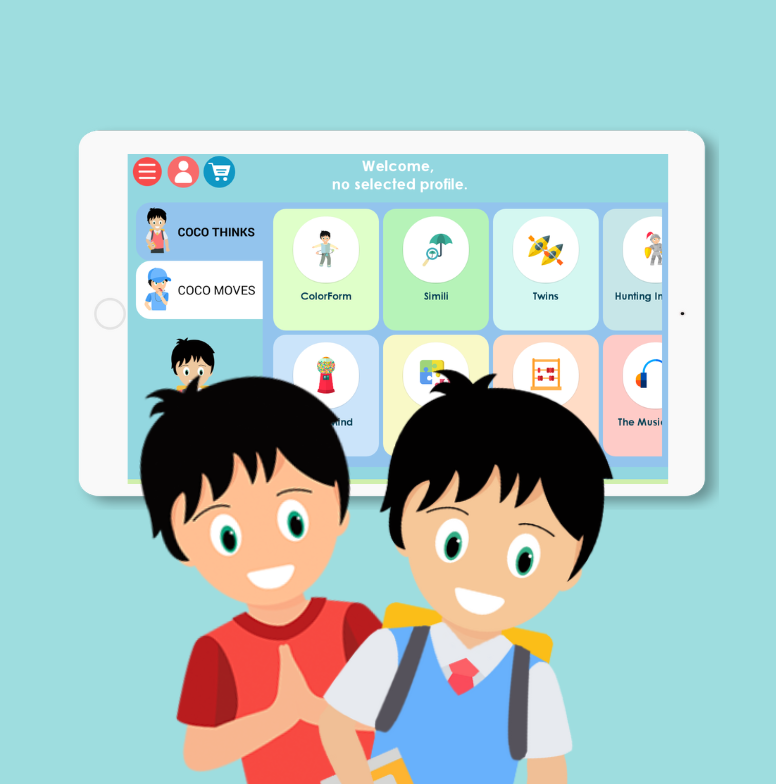
Choosing the right child psychologist
Finding the right psychologist for your child is a crucial step in supporting his or her mental health and well-being. Children can face a variety of emotional and behavioral challenges, and a qualified professional can play a vital role in supporting them. In this article, we’ll guide you through the key elements to consider when choosing a child psychologist.
Qualifications and certifications to look for
When it comes to your child’s mental health, it’s essential to ensure that the psychologist has the appropriate qualifications. Look for the following items:
- Professional license: Check that the psychologist is licensed to practice in your area and that he or she complies with local laws and regulations.
- Specialized training: Child psychologists should have specific training in child psychology, developmental psychology or related fields.
- Relevant certifications : Certain certifications, such as clinical psychologist certification, may indicate additional expertise.
The importance of compatibility between psychologist and child
The relationship between the psychologist and the child is crucial to the success of the therapy. Make sure the psychologist and your child get along well. Consider the following points:
- Empathy and understanding: The psychologist should demonstrate an ability to understand your child’s emotional needs and make a connection.
- Age-appropriate approach: The psychologist must be able to communicate effectively with children, using techniques adapted to their level of development.
- Mutual trust: It’s essential that your child feels confident enough to open up to the psychologist and share his or her concerns.
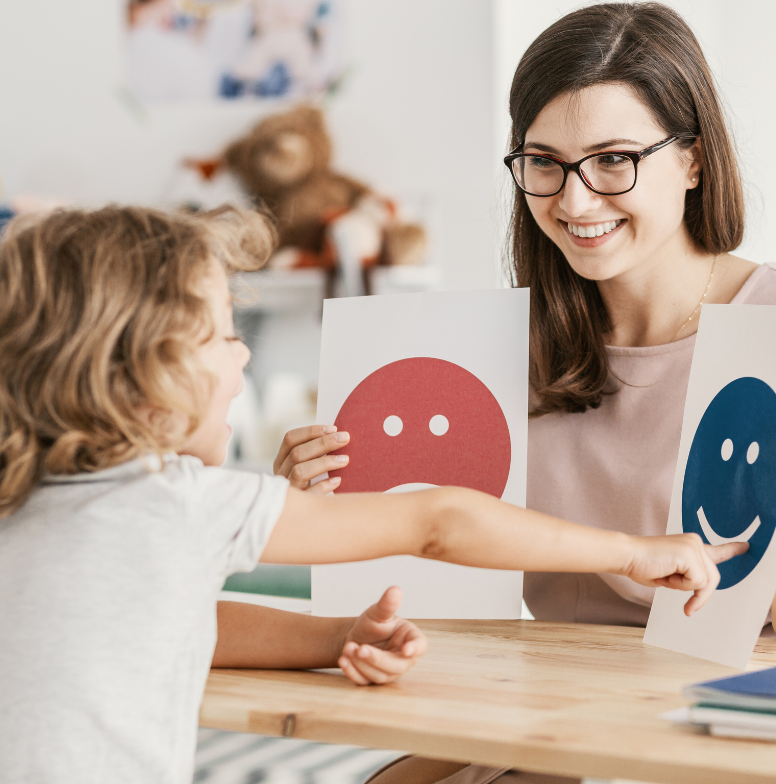
Questions to ask when looking for a professional
Before making a decision, ask important questions to assess the suitability of a psychologist for your child. Here are some questions to consider:
- What experience do you have in treating my child’s specific problems?
- What is your therapeutic approach and how does it align with my child’s needs?
- What are your service fees and payment options?
- How will follow-up and communication with parents take place?
What to expect on your first visit
The first visit to a child psychologist can be a worrying experience. However, it’s important to know what to expect:
- Initial interview: During the first visit, the psychologist will take the time to discuss your child’s concerns and history. This is the ideal time to ask questions and express your expectations.
- Assessment: The psychologist can use a variety of assessment methods to better understand your child’s needs. This can include questionnaires, interviews and observations.
- Treatment plan : After the initial assessment, the psychologist will develop a treatment plan tailored to your child’s needs. This plan will generally include treatment objectives and specific methods.
How psychologists work with children
Psychologists use a variety of therapeutic approaches when working with children. These approaches can include :
- Cognitive-behavioral therapy (CBT ): This helps children recognize and manage their thoughts and emotions in a healthier way.
- Play therapy: Young children can benefit from play therapy, which helps them express themselves through playful activities.
- Family therapy: In some cases, family therapy may be necessary to deal with problems that affect the whole family.
Other articles that might interest you:
Supporting children with autism
Dynseo proposesSUPPORTING CHILDREN WITH AUTISM with COCO THINKS AND COCO MOVESDynseo and its team are very much...
Supporting DYS children with COCO THINKS and COCO MOVES
Dynseo proposesDYS disorders with COCO THINKS and COCO MOVESOur educational and pedagogical games program COCO THINKS...
Language development
Children communicate from birth with movements, crying, looking at each other or with smiles. After only a few months,...
Supporting children with Down Syndrome with Coco
Dynseo proposesDOWN SYNDROME with COCODown syndrome is a non-hereditary chromosomal abnormality that leads to the...
Supporting people after a stroke
Dynseo proposesStroke with CLINT, your brain training coachThe Dynseo team is very involved in helping people who have...
Supporting someone with Alzheimer’s
In this guide, we will detail how SCARLETT can be used for supporting someone with Alzheimer's. SCARLETT is a...
10 myths about the human brain you didn’t know
The brain is an incredible muscle, however there are many things we do not know, and what we do know is not always...
Using Digital Tools to Support Students with Special Educational Needs
Special Educational Needs (SEN) encompass a wide range of learning difficulties and disabilities that can hinder a...
Down Syndrome and Communication: Facilitating Interaction with Visual and Interactive Supports
When we think about Down syndrome, we often recognize it as a genetic condition that affects physical and cognitive...
How to Track Progress in People with Down Syndrome Using Digital Tools
Down syndrome, a genetic condition caused by the presence of an extra chromosome 21, affects approximately 1 in every...



